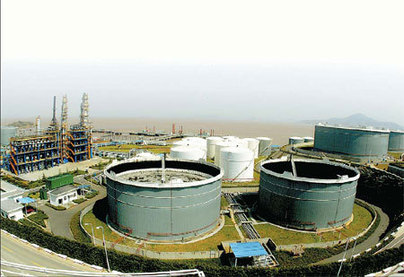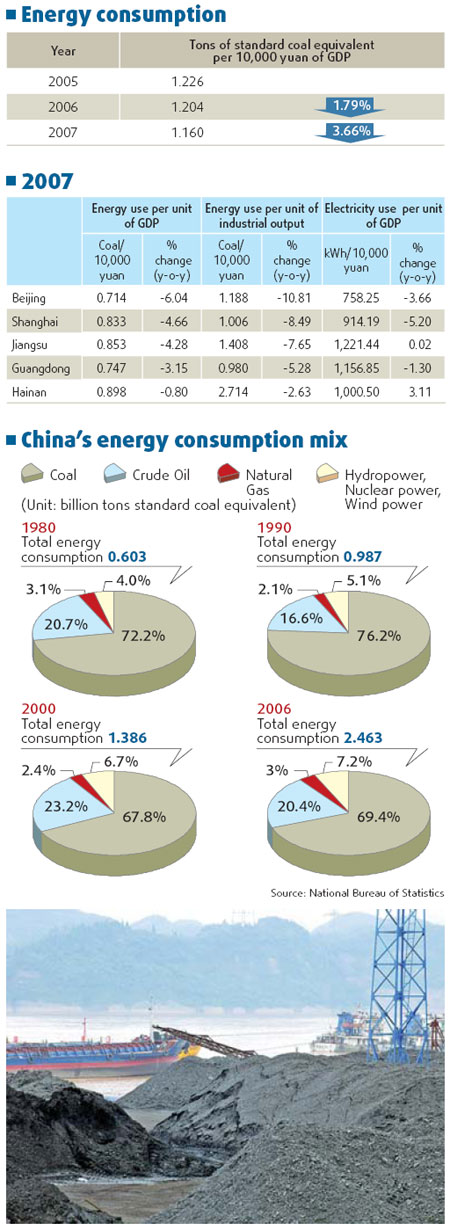
|
BIZCHINA> 30 Years of Reforms
 |
|
Related
Thrust on energy efficiency as country advances
By Fu Jing (China Daily)
Updated: 2008-08-15 17:13
 China, in some ways, had not officially put itself on the path of industrialization until early 1980s. And it's hardly surprising that China's total energy demand has been and will keep rising to meet the increasing demand stemming from modernization. Energy efficiency has long been regarded as a way to reduce production costs as China moves forward to becoming a market economy despite the fact that before 2006, the notion was not as high on the government agenda as it is today. Figures show that China's energy consumption density per unit of GDP has been falling. In 1980-90, the annual pace was 3.6 percent and that in 1991-2005, 3.1 percent. However, China made great strides from 1991 to 1995, when the energy density was cut by 5.8 percent annually. Partly based on these impressive achievements, China's top legislative body National People's Congress has approved a goal of cutting energy consumption in 2006-10 by 20 percent. In 2006 and 2007, China has reached a little more than 5 percent of that goal. To achieve the overall goal, the country will have to cut energy density by a minimum average of 5 percent a year from 2008 to 2010. More technical improvement and awareness will be sought as the Chinese leadership has taken energy efficiency not only as an economic but also as a political mission. The government has also linked energy-saving performance to the career path of officials and leaders of State-owned enterprises to curb energy consumption. At the same time, the government has been gradually deregulating the oil prices after allowing coal prices to be set by the market several years ago. China has reached a stage when its economic and industrial structure is being upgraded and as the market economy matures, the service industries have more opportunities to prosper. So far, the rapid economic growth in China has been achieved through heavy input of financial resources and energy. Apart from the relatively low efficiency of energy consumption, another important reason behind the huge energy consumption is the high proportion of manufacturing industry in the country's economy. The service industry does not involve heavy energy consumption but human resources. Therefore their boom would diminish the overall demand for resources in the economy and facilitate energy saving and emission reduction. However, this would require long-term, sustained efforts. Latest research shows China's energy consumption is likely to reach 3.1 billion tons of standard coal equivalent by 2010, 100 million tons more than the earlier ceiling. The numbers are "the most likely scenario" for China's energy consumption, as were revealed by a recent report of the State Council Development Research Center.
Premier Wen Jiabao has stressed energy wastage is still a serious problem in government departments and institutions, State-owned enterprises, large public projects and individual households. Wen is right: energy saving is the common responsibility of the entire society.
 (For more biz stories, please visit Industries)
|